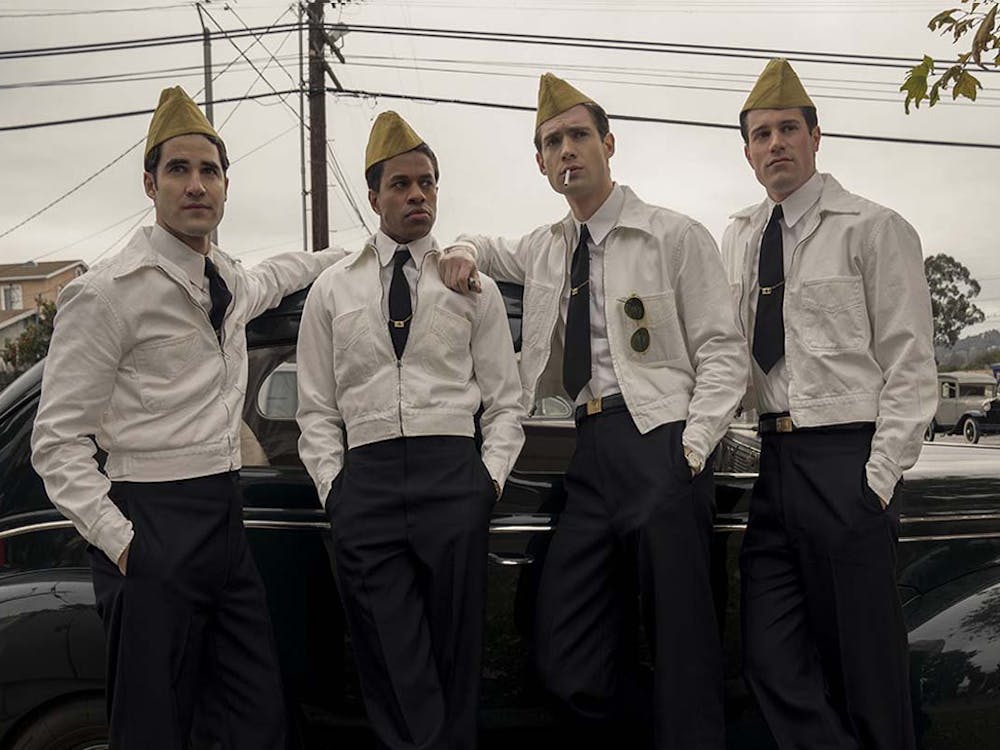As each day of the coronavirus pandemic passes by, I find myself gravitating toward classic Hollywood movies, imagining what life would be like on the silver screen rather than behind my computer screen. For the past few months, I’ve been conditioned to seek comfort in the escapist fantasies of the post-war media I consume instead of confronting the realities around me, especially since my plans for the near future are completely up in the air.
However, it’s difficult to feel nostalgia for a time when my interracial family would have been ostracized, a time when many of my close friends and relatives would have been denied opportunities because of their race, sexual orientation or gender identity. The new Netflix series “Hollywood” addresses this tension. The show is a reimagining of the 1940s film industry if it were open to underrepresented minorities, but it misses the opportunity to be an effective critique of institutionalized discriminatory practices in Hollywood that still exist to this day.
“Hollywood” transports us to its golden age, where we witness a crew of young actors, writers and directors navigate their way through show business. They work together to create “Meg,” a movie about an African-American woman who jumps from the Hollywood sign after realizing she can never attain her dream of becoming an actress. “Hollywood” introduces “diverse” fictional characters such as World War II veteran and aspiring actor Jack Costello, black gay screenwriter Archie Coleman and half-Filipino director Raymond Ainsley. The show also features fictionalized representations of real-life Hollywood residents like closeted gay movie star Rock Hudson, Chinese-American actress Anna May Wong and notorious talent agent Henry Willson.
The show weaves truth and fiction in a way that glamorizes the Hollywood lifestyle while glossing over the struggles faced by newcomers in the entertainment industry. In “Hollywood,” the enemy to progress is everyone but Hollywood itself. Ahead of their times and steadfastly moral, the studio executives in the show agree to finance “Meg” despite protests from the media in various parts of the country. This shift in blame for underrepresentation in film paints Hollywood in a sympathetic light and fails to accurately portray the industry’s cutthroat nature for outsiders. For a series that supposedly criticizes systemic discrimination, it fails to acknowledge how these practices still run Hollywood to this day.
The series hones in on the message that movies can change the attitude of the country for the better. “Hollywood” argues that if we change the way we make movies, we can change the world. When “Meg” receives its wide release in theaters across America, the film miraculously becomes universally beloved, which seems way too outlandish, even for this version of a progressive Hollywood. Representation in the film industry has come a long way, but animosity across socio political lines still runs rampant, as it did decades ago. Yet, “Meg” manages to do what no other movie has ever done and solves racism overnight. It wins several Oscars, most notably a Best Actress award for Camille Washington, who becomes the first black woman to receive the honor.
This is emblematic of another issue with “Hollywood” — a hypocritically poor characterization of its main players. Camille remains underdeveloped throughout the series even though she plays the lead role in “Meg.” We never learn where she comes from, what her motivations are or how much she is willing to go through to achieve her dreams of making it in Hollywood. The show merely treats her as a symbol of rebellion rather than a human character that an audience can root for.
In many ways, “Hollywood” attempts to comment on the injustices of discrimination, but its creative liberties are too unrealistic to draw us into its world. The show tries to make a statement with its existence rather than its storytelling. After we are intrigued by the acting performances and dazzled by the grandiose set production, what remains is merely a tribute to a false Hollywood created by the people who already sit at the top.
Get The Chronicle straight to your inbox
Sign up for our weekly newsletter. Cancel at any time.

